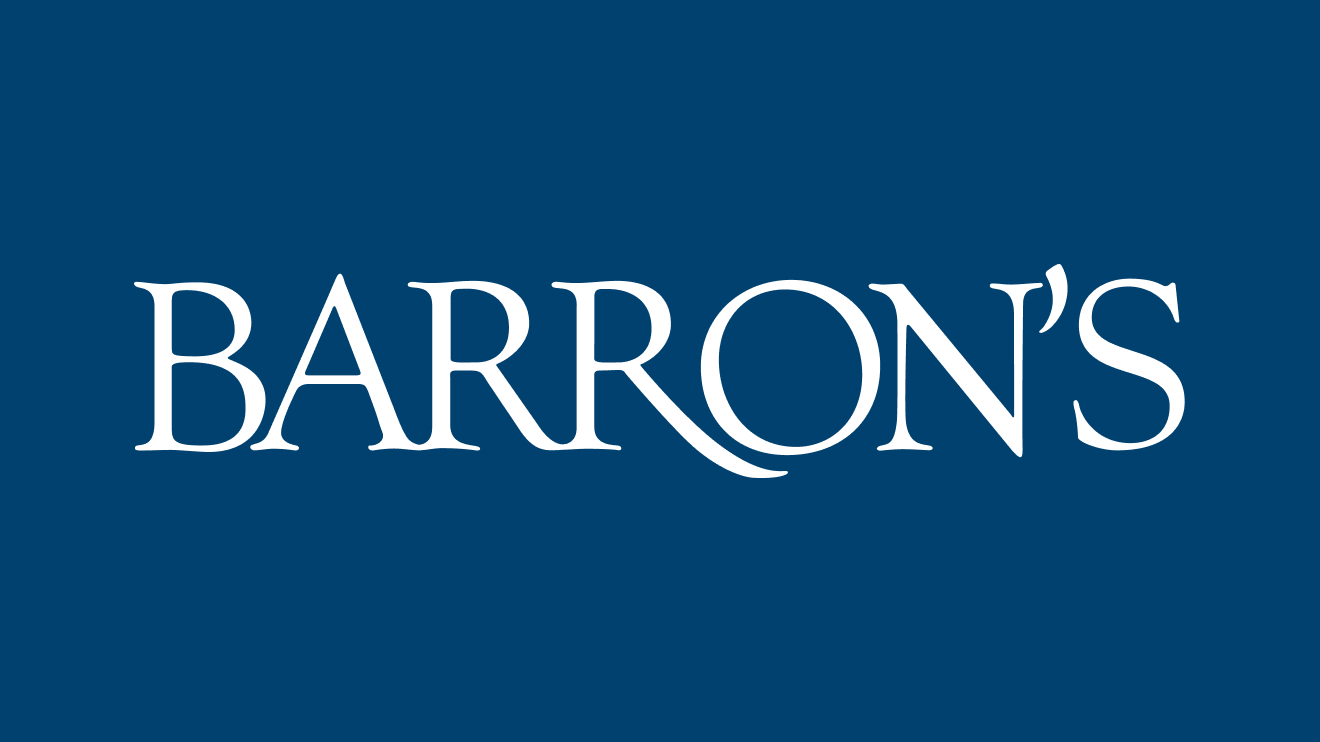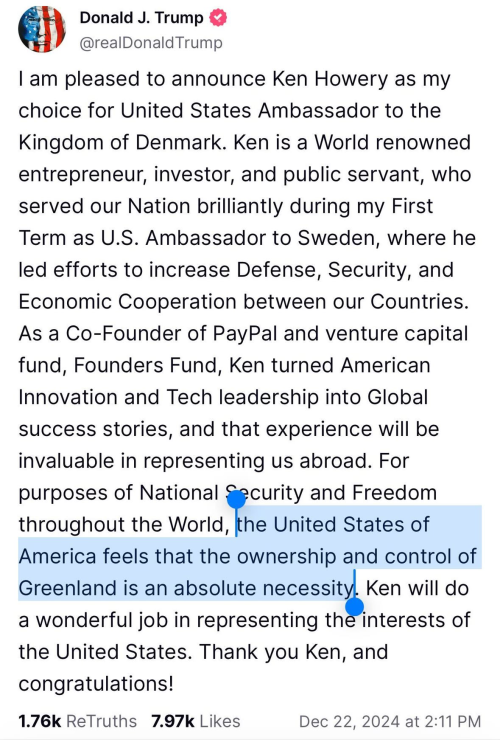superchuck500
U.S. Blues
Offline
Oh, but he's only joking - well, maybe, so they say. Or sort of joking with Canada, and maybe not joking with Greenland - saying that "ownership and control of Greenland is an absolute necessity" doesn't sound like a joke . . . and um, not sure about what the about Panama Canal thing is?


 www.barrons.com
www.barrons.com


 apnews.com
apnews.com



Trump Jokes Canada Becoming 51st US State 'A Great Idea'
US President-elect Donald Trump said Wednesday it would be "a great idea" for Canada to become the 51st US state, teasing on social media that "many Canadians" welcome the idea, as Ottawa is wracked by a political crisis.
Trump threatens to try to take back the Panama Canal. Panama's president balks at the suggestion
Trump didn't explain how such a takeover would be possible, given that the U.S. relinquished control of the canal to Panama in 1999 under a treaty signed by President Jimmy Carter in 1977.



